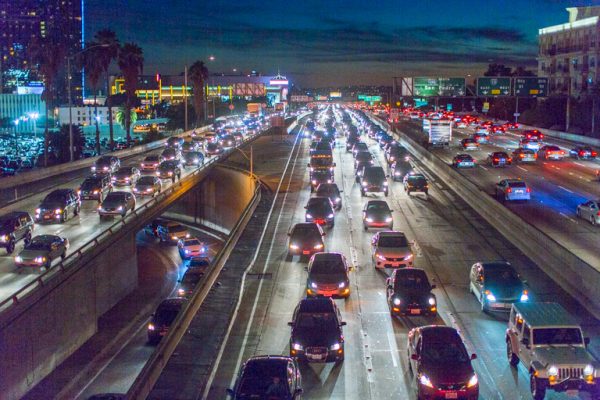The Olympics Return to Hollywood
Eric Demarcq
Los Angeles announces that it will host the 2028 Olympic Games for the second time in 44 years after winning the bid, spurring excitement throughout everyone in the city. (PHOTO COURTESY OF ERIC DEMARCQ VIA FLICKR)
October 4, 2017
For the second time in a span of 44 years the city of Los Angeles has won the bid to host the Olympic Games. Los Angeles of 1984 is extremely different from the city of today, and as the glamourous city continues to evolve and improve, it will be far more different when the 2028 Olympic Games arrive. The risk and reward factors for this Olympics is just as risky as it was in 1984, dealing with financial elements like public funding, corporate sponsor list and television rights. All of these terms equal dollars spent on shopping, food, hotels, vehicles and every other necessity it requires to host people from all over the globe.
Given we have now entered the digital age, a healthy portion of the 2028 Olympics will be marketed to a younger audience. This is not your father’s Olympics. We asked Fordham Water Polo Team member Ethan Vandeventer, Fordham College at Lincoln Center (FCLC) ‘18, who is from L.A., how he feels about the Olympics being hosted in his city again.
“The 1984 games were before my lifetime, but I heard quite a bit about it from my parents,” Vandeventer said. “L.A. is a perfect place to host an Olympic games because there is so much room; it was a buzz in the city pushing for the 2024 games, but we got it for 2028 instead.”
Many technological breakthroughs have occurred since 1984, like the Internet and social media, both of which make 2028 all the more attractive because those things bring the games to the world quickly and efficiently.
When we see the Olympics, we see the finished product. But the truth is it’s actually something between an investment and a gamble. It takes proper planning along with precision execution to receive the payoff for hosting the Olympics in your city.
The logistics required to run the Olympics is an immense challenge that will undoubtedly test the infrastructure and supply chain of the City Of Angels, not as if it hadn’t been tested before.
Los Angeles is already a nightmare of a city when it comes to traffic. Those who have experience driving there can attest to that. Think about adding millions of people from all over the world to the city’s population.
Professor Mark Conrad is the Director of Sports Business Concentration at the Gabelli School of Business. We asked him what are some factors that make the Olympics of 2028 and the Olympics of 1984 different. “The 2028 Olympics is a much larger event than the 1984 Olympics because there are more athletes and many more sports now than before,” he replied.
Professor Conrad also stated housing and security will be significantly different than the previous games, as well as transportation and traffic, due to L.A’s physical development since its last hosting of the Olympics. These are some of the challenges that will “need to be overcome” whether it’s 1984 or 2028.
When asked what he thought was one of the greatest things that the 2028 Olympics has to build on that the 1984 didn’t, he replied, “the 11 years that the 2028 Olympic Games has to market and promote its product is a unique advantage.”
One of the things that gives Los Angeles an advantage is the 1984 Olympics was one of the most successful iterations of the games in a long time-the city has a blueprint for success from the past. However, new challenges exist, and proactivity should be exercised in order to duplicate and expand on that past success.
Financial risk makes the games a tough undertaking. Brazil is a perfect example. Learning from the lessons in Brazil where the games were a temporary band aid in underdeveloped areas. These areas should be in better shape when the games leave town than when they came. Speaking in terms of tangible elements, someone who is a product of Los Angeles, Vandeventer, said, “Urban development and youth programs still exist from the 1984 Olympics, and that’s the best proof of giving back to the community.” The buzz in the Los Angeles area starts now. He grew up directly in the backdrop of the Rose Bowl. Vandeveter said, “I’m excited to see what takes place in the next 11 years.”
Granted, the city has a 44-year gap in time this represents a technological leap. We have now entered the digital age and the technology of the ’80s is not the millennium technology of today. Technological advantages are a bonus for the city, being in the same state as Silicon Valley, so tapping into the local and global talent pool will help the process. Social media and information technology advancements will be huge since a younger audience has taken the lead. The future’s looking bright in Los Angeles.
FEATURED PHOTO COURTESY OF ERIC DEMARCQ VIA FLICKR










